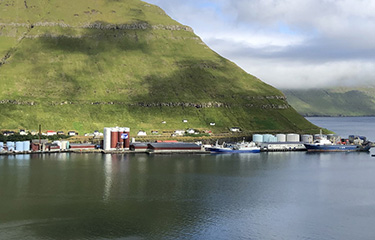European Fishmeal and Fish Oil Producers (EFFOP) has warned the Scottish government to carefully consider the consequences of its proposal to cease all sandeel fishing in the country’s waters.
Recognizing that European sandeel fishing has historically been an important resource within the fishmeal market, the EFFOP claims an abrupt closure of the fishery in Scotland might disrupt supply chains, impact jobs, and negatively affect local economies.
The U.K. has banned sandeel fishing in English waters for three years in a row, and in July this year, the Scottish government launched a consultation regarding its proposal to close fishing for sandeels in all Scottish waters. The ban is intended to ensure the sustainability of the stock, providing wider ecosystem benefits to commercial fish species, seabirds, and sea mammals. This consultation period ended on 13 October.
Environmental groups have backed the ban, with the National Trust for Scotland among organizations that feel the move would help the long-term conservation of Scottish marine wildlife. According to the group, banning sandeel fishing is “an easy opportunity to help seabirds to forage more fish,” which will help them raise stronger, healthier offspring. It also suggests that since no Scottish boat fish for sandeels, there should be no negative impact on Scottish fishing communities.
Fishing vessels from Denmark, Norway, and Sweden predominantly harvest the tiny fish; the U.K. possesses just 3 percent of the North Sea sandeel quota.
However, the EFFOP argues that there are already multiple measures in place aimed at protecting the region’s sandeel stocks. Alongside ground protection, fishery closures in sensitive areas, and advisory measures for total allowable catch (TAC), there’s also a network of marine protected areas (MPAs).
Specifically, there has been a partial closure within Scottish Sandeel Management Area 4 since 2000 for the purpose of avoiding cod and haddock bycatch in the area and negative impacts on the food supply for seabirds.
EFFOP Managing Director Anne Mette Bæk told SeafoodSource that since 2015, fishers have landed an annual average of 15,000 metric tons (MT) of sandeels from Area 4, and said that while these landings might appear modest in comparison to some other sandeel management areas, the fact it contains a fully established MPA dedicated to marine conservation highlights the commitment to sustaining the delicate marine ecosystem within the region.
“These landings yield approximately 4,000 MT ...
Photo courtesy of the European Fishmeal and Fish Oil Producers








